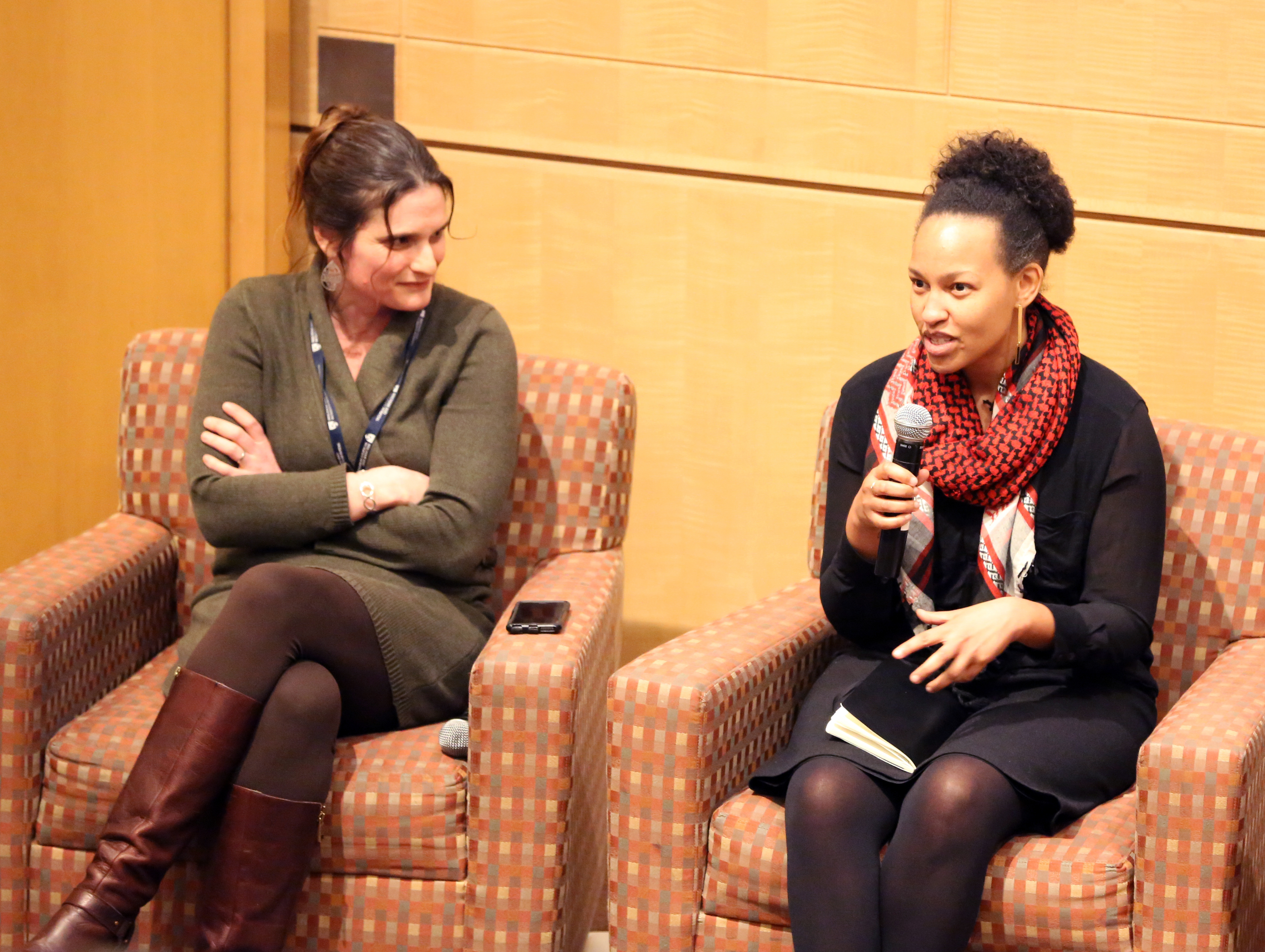BWH Celebrates the Legacy of MLK in Health Equity

From left: Abigail Ortiz and Michelle Morse
As part of an event honoring the life and legacy of Rev. Dr. Martin Luther King Jr., a panel of BWHers and community activists reflected on progress made and gaps that remain in health equity as well as racial and economic justice.
The Jan. 16 event, held in Bornstein Amphitheater, was moderated by Sabrina Williams, MBA, SPHR, Brigham Health chief diversity and inclusion officer. Williams opened the discussion by reading a quote from Dr. King: “Our lives begin to end the day we become silent about things that matter.” Although several decades have passed since he spoke those words, they continue to be relevant for society at large and within the Brigham, she said.
“Inclusion is one of our institutional values. There is a real opportunity for us to advance Dr. King’s legacy as individuals and collectively,” Williams said. “This organization has not been silent about inequity and injustice, and I look forward to amplifying our work even further.”
Dr. King’s pioneering leadership in Civil Rights included enduring messages and lessons about health equity, speakers noted. Ron M. Walls, MD, Brigham Health executive vice president and chief operating officer, shared part of a speech Dr. King delivered at the second Medical Committee for Human Rights in 1966: “Of all forms of inequity, injustice in health is the most shocking and the most inhuman.”
 The message is still a poignant reminder of the duty health care institutions such as the Brigham have in propelling health equity and inclusion, Walls said.
The message is still a poignant reminder of the duty health care institutions such as the Brigham have in propelling health equity and inclusion, Walls said.
“We should never forget that powerful and sobering perspective from Dr. King,” he said. “As an organization, we sit at the front lines in advocating for and advancing health care as an engine for equality and good.”
Achieving these goals requires everyone to actively participate in racial justice and equity work, said Abigail Ortiz, MSW, MPH, director of Community Health Programs at Southern Jamaica Plain Health Center. Equally important is ensuring there is a shared framework to guide our process and projects, she added.
“Instead of talking about race in health, we should talk about racism in health. It’s not race causing the inequities, but racism,” Ortiz said. “One thing we might need now is a definition of racism that all of us share so that we can talk about it in a way that critiques, at a structural level, how and where the health care system fails to deliver racial equity.”
Reflecting on how she honors Dr. King’s legacy, Michelle Morse, MD, MPH, of the Division of Global Health Equity, added that it’s important to consider these issues in a broader context.
“Dr. King never hesitated to speak about the corrupt regime in South Africa and how apartheid was just as important as Jim Crow and the unbelievable Civil Rights abuses happening in the U.S,” Morse said. “Dr. King showed that these movements are all connected, and we can’t make sufficient progress unless we recognize that.”
Fellow panelists Tanisha Sullivan, president of the Boston National Association for the Advancement of Colored People (NAACP), and former state Sen. Dianne Wilkerson underscored the link between health equity and broader issues of racial and economic justice.
Sullivan and Wilkerson noted that, as employers, health care institutions can create space for self-empowerment in local communities of color through professional opportunities – key areas of focus for the Brigham’s efforts to elevate diversity and inclusion.
“There’s a continuum – recruitment, retention and development. Being intentional about that is so very important,” Sullivan said.

Leave a Reply